by Joshua Thomas
Synthetic motor oils offer a lot of advantages when used in a car engine. From improved viscosity to the many other features that help to improve a car's engine life, lubricating your car's engine with the best synthetic oil is definitely a good idea.
Although some older vehicles may not gain much from synthetic oils, most modern vehicles from the year 2,000 on will definitely get a cleaner engine with less tear and wear, when they run on synthetic oil.
The issue with synthetic oils though is that there are so many of them in the market, including those that are not very good. But here we provide a list of top-rated synthetic oils plus a buying guide to help you know what to watch out for when making your choice.
| IMAGE | PRODUCT | FEATURES |
|---|---|---|
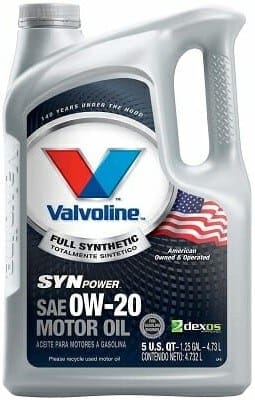 | 1. Valvoline 813460 (Best 0W20 Synthetic Oil) |
|
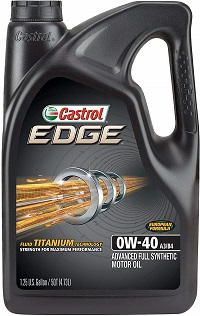 | 2. Castrol Edge 03101 (Best Brand) |
|
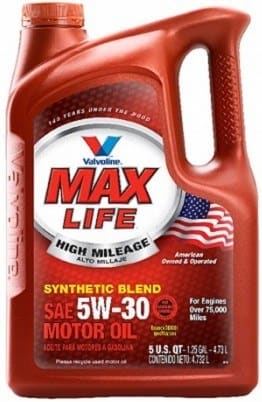 | 3. Valvoline 782253 (Best 5W20 Synthetic Blend Oil) |
|
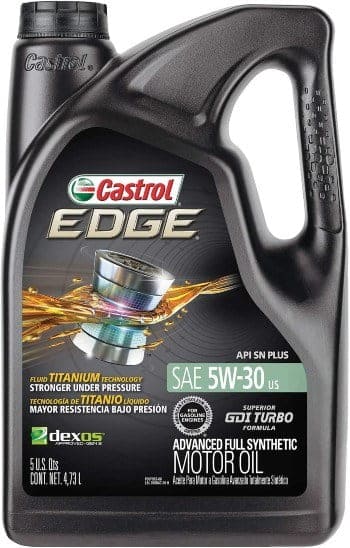 | 4. Castrol 03084 (Best Full Synthetic Oil for the Money) |
|
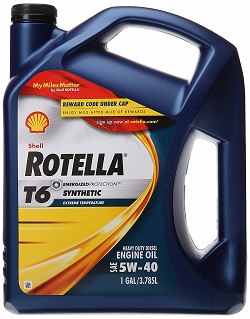 | 5. Shell Rotella T6 5W40 (Best for Diesel Engine) |
|
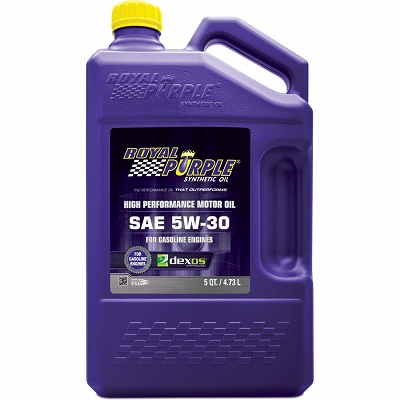 | 6. Royal Purple 51530 (Best 5W30 Synthetic Oil) |
|
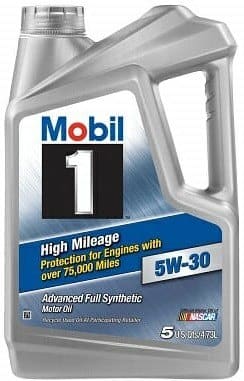 | 7. Mobil 1 120769 (Best for High Mileage) |
|
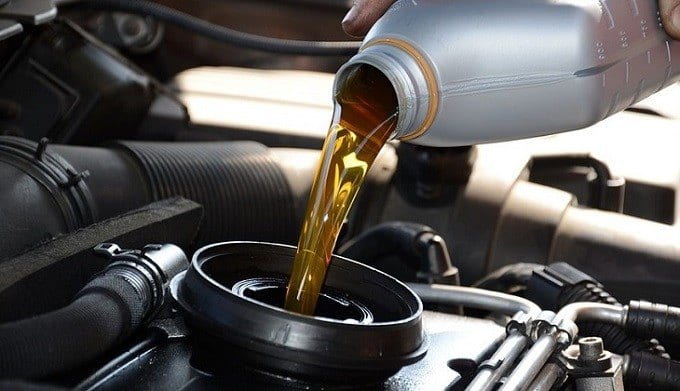

When you demand the best performance from your car's engine, you'll also need to make sure that it gets only the best. And if it calls for the 0W-20 oil, the Valvoline 813460 is our best option for you.
Besides being the best 0W-20 synthetic oil in this review, this oil also features sludge protection, high and low-temperature protection, better fuel efficiency, and you can either get this 5-quart container or just a quart container, or a 3-pack of 5-quart containers.
It's a premium quality and full synthetic oil, designed for high-performance engines and to fulfill the standards of all leading engine makers.
This oil will work on a variety of cars, including those that run on gasoline and on diesel. It's, however, not the perfect motor oil for high-mileage and heavy-duty diesel engines.
It also works well on hybrids and is the perfect oil for in-warranty services, where API specifications are strictly observed, such as with Toyota and Honda vehicles.
For high mileage vehicles and heavy diesel engines, this is not the best oil. But for any other vehicle it should do a fantastic job.
Pros
Cons


Castrol is one of those brands that you will never go wrong when it comes to motor oil and other lubricants as they are one of the global industry leaders.
This top brand presents one of its most advanced engine oil formula here with the full synthetic Edge 03101. It is a premium motor oil for the best engines with high-performance expectations.
This oil comes recommended by many leading car manufacturers, and it also meets the oil specifications of the largest carmakers in the world, including Ford's WSS-M2C937-A specification and BMW's LL-01.
Castrol guarantees that this oil is Titanium strong in reducing metal to metal contact. Additionally, this oil protects your engine under extreme pressure condition.
And besides this 0W-40 viscosity oil, you can also get this Castrol oil in the 0W-20 viscosity, which gives you more options for different vehicles and driving conditions.
Pros
Cons


Older engines have different oil needs than newer engines. So, while other oils might offer you the best performance you can get, this high mileage Valvoline synthetic blend oil is specifically designed to meet the needs of older engines.
This oil packs extra detergents to increase the cleaning action of your engine. It also comes with seal conditioners to rejuvenate old engine seals and help protect them from leaking.
You should note that this oil formula is not ideal for all engines. Your car would need to have clocked 75,000 miles at least before it can truly benefit from it.
In addition to extra detergents and seal conditioners, the oil also includes antioxidants and extra wear protection to cut down on future engine wear.
For high performance engines, this oil might not be up to the task, but you can be sure that it will still not damage them and will offer decent lubrication.
Pros
Cons


Although the service and performance that the oil delivers is always the most important factor, cost also matters. And if you are looking for an effective but more budget-friendly synthetic oil, the Castrol 03084 is a perfect choice.
This full synthetic oil uses fluid titanium technology to ensure it delivers a powerful performance under pressure. Also, it is formulated to minimize metal on metal contact, and to offer full engine protection to lengthen the vehicle's service life significantly.
With this oil in your engine, you are also guaranteed of minimal engine deposit, and it will also allow for relatively longer oil change interval, and hence saving you even more money.
While this oil does not seem to improve the mileage significantly, it makes up for this by giving the engine superior protection for its price.
Castrol also offers this full synthetic oil in other viscosity options, which includes the 5W-20 and 5W-40.
Pros
Cons


This Shell Rotella T6 formula offers lots of advantages over other engine oils. And it is specifically-formulated for the diesel engines.
Its low winter viscosity of 5W makes it very helpful in cold weather by improving engine startups and improving fuel economy up to 1.5% while maintaining enough viscosity to prevent wear and tear.
Another important feature is its low-ash technology. This helps in reducing the poisoning or blocking of devices that treat exhaust gases for emission control, such as the catalytic converter.
In addition to keeping good emission levels, the Shell Rotella T6 also features improved heat resistance, as well as advanced additive technology for protection against deposits, wear, and oil breakdown.
This oil seems to thin a little too easily when compared to others, but you can easily avoid wastage by ordering just what you need to use at a go.
Pros
Cons

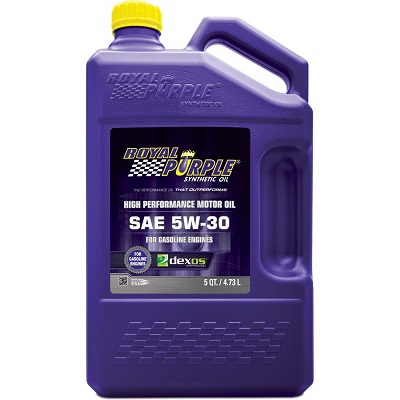
The Royal Purple 51530 is a 5W-30 oil made from combining standard mineral oils with additives to give it an improved performance over ordinary mineral oils.
These improved features include protection from corrosion, protection of the car's emission control system, better protection from wear, and an improved fuel efficiency as a result of the improvement in lubrication.
This oil will provide better protection for the expensive catalytic emission system. And this synthetic blend oil will also offer improved compatibility with fuels that have ethanol.
This oil meets the Dexos1 and ILSAC GF-5 performance standards, although it's rather too costly for a synthetic blend package.
For a synthetic blend oil, this product is relatively pricier but the performance you get makes it worth every buck.
Pros
Cons


High mileage oils are the best engine oils for vehicles that have crossed the 75,000 miles mark. The engines are different from those of other vehicles, so they need special care as well.
This Mobil High Mileage oil is specifically designed to cater for the needs of such high mileage vehicles by focusing on better wear protection and an increased level of seal conditioner to protect the engine's seals and prevent leaks.
It also offers your engine a high level of sludge reduction, although you must change the oil in brief intervals until the sludge is cleaned out or decimated.
In addition to all its extra features for high mileage engines, this oil also carries out its primary duty of lubricating and protecting the engine.
Downsides are that it's neither ideal for new cars nor for high-performance engines.
Pros
Cons


Full Synthetic
A fully synthetic oil is entirely made from synthetic materials while a synthetic blend oil is a mixture of a fully synthetic oil with standard motor oil.
Full synthetic oils like the Mag 1 20139 are custom designed to offer specific characteristics that a car needs for the optimal functioning of its engine. And for this reason, they were originally used mostly in high-performance cars. Their disadvantage is that they are costlier.
Synthetic Blends
Synthetic blend oils, on the other hand, combine the good features of fully synthetic oils with the advantage of standard motor oils, which is why a cheaper price.
And while they might not offer the same quality and long change intervals like the full synthetic oils, the synthetic blends like Valvoline 782253 will be very good for older engines.
If you're upgrading from standard motor oil to synthetic oil and you're wondering if you can combine the two, the simple answer will be: Yes, you can but should you?
Nothing stops you from mixing both oils but remember that the major reason you're switching to synthetic oil is the many benefits it offers. So, mixing it with standard motor oil will naturally cut down on these benefits.
To get the best performance, you'll need to drain the oil before introducing the new one. Also, check to make sure that your vehicle is a modern engine (from 2,000 model) that will benefit from synthetic motor oil before going ahead.
Oil viscosity is a measure of how thick or thin it is, and since oil tends to thin out at higher temperatures, heavier-duty engines need thicker or more viscous oils to keep running smoothly and prevent tear and wear when doing serious work.
On the other hand, if the oil is too thick, then your engine could suffer from startup issues. So, you need to use an oil with the right viscosity for your car's engine and this rating is usually provided in the car's manual.
If you haul heavy loads or drive a lot in a hot environment, then you can choose an oil with a slightly higher viscosity and if you live in a cold region or just use the car for light errands, then an oil with a slightly lower viscosity rating would be great.
Oil grades are either given as 5W-30 or SAE 30, for example. When a 'W' is present, it states the oil's viscosity at a cold (Winter) temperature, which in this case would be 5. The 30 though, refers to the oil's viscosity at 100 Centigrades, which is generally considered a standard engine-operation temperature.
Additives are what make the best synthetic oils to stand out. There are so many types of additives that you'll find in a synthetic oil and different manufacturers also have their own unique formulas for combining these additives.
Here is a list of some common additives and what they are good for.

The old advice goes you should change your car's engine oil every three months or 3,000 miles but that advice has gotten outdated because of the many advancements in the automobile industry.
You can find many cars that can drive for up to 5,000 and even 10,000 miles before needing an oil change. This is thanks to improved engine design and manufacturer's requirements of using better-quality oils in modern cars.
To know the best time to change your car's oil, you'll need to conduct the owner's manual and then consider your personal driving habits. If you drive more intensely or pull heavy loads, then changing your oil before the recommended time isn't bad at all.
Else, you can just wait for the oil replacement light on your dashboard to come on. This is mostly possible in modern cars, of course, but you can also depend on the old oil level check as well.
You should check your car's oil level at least once a month. When the oil loses its transparency and turns really black, then it's time to consider changing it. You can also touch it and rub the oil between two fingers. If the oil feels coarse or gritty, then it probably needs changing.
A final condition to changing your car's oil is when you hear increased engine noise or you've simply clocked over 10,000 miles since your last oil change.
Mobil 1 Extended Performance (120766) Extended Performance 5W-30 Motor Oil - 5 Quart - Walmart Link
Castrol 03057 GTX MAGNATEC 5W-30 Full Synthetic Motor Oil, Green, 5 Quart - Walmart Link
Shell Rotella T6 Full Synthetic 5W-40 Diesel Engine Oil (1-Gallon, Single Pack) - Walmart Link
Pennzoil Ultra Platinum Full Synthetic 0W-40 Motor Oil (1 Quart, Case of 6) - Walmart Link
Valvoline High Mileage with MaxLife Technology SAE 5W-30 Synthetic Blend Motor Oil 5 QT - Walmart Link
Mobil 1 120764 5W-30 Synthetic Motor Oil - 5 Quart - Walmart Link
Castrol 03101 EDGE 0W-40 A3/B4 Advanced Full Synthetic Motor Oil, 5 quart, 1 pack - Walmart Link
Castrol 06005-6PK GTX Magnatec Green 5W-30 Motor Oil - 6 Quart, (Pack of 6) - Walmart Link
Liqui Moly 2041 Premium 5W-40 Synthetic Motor Oil - 5 Liter - Walmart Link
Royal Purple 11748 HMX SAE 5W-30 High Mileage Synthetic Motor Oil - 5 Qt. - Walmart Link
Valvoline VR1 Racing Synthetic SAE 20W-50 Motor Oil 1 QT, Case of 6 - Walmart Link
Brad Penn Oil 10W-30 Partial Synthetic Racing Oil 12 Pack with Funnel - Walmart Link
Royal Purple 51530 High Performance Motor Oil 5W-30 (5QT) - Walmart Link
Motul MTL102870 007250 8100 X-cess 5W-40 Synthetic Gasoline and Diesel Engine Oil - 5 - Walmart Link
Valvoline European Vehicle Full Synthetic SAE 5W-40 Motor Oil 1 QT - Walmart Link
Castrol 06112 POWER 1 4T 10W-40 Synthetic Motorcycle Oil, 1 Quart Bottle, 6 Pack (15D1C9) - Walmart Link
RAVENOL J1V1001 SAE 5W-40 4-Stroke Motorcycle Oil - 4-T Full Synthetic Ester JASO MA/MA2 - Walmart Link
Valvoline 4-Stroke Motorcycle Full Synthetic SAE 10W-40 Motor Oil 1 QT - Walmart Link
Liqui Moly 2039 Longtime High Tech 5W-30 Synthetic Motor Oil - 5 Liter - Walmart Link
Mobil 1 Extended Performance 0W-20 Full Synthetic Motor Oil, 5 qt - Walmart Link
a 3-pack of 5-quart containers - Walmart Link
the Mag 1 20139 - Walmart Link
Mobil 1 Extended Performance (120766) Extended Performance 5W-30 Motor Oil - 5 Quart - eBay Link
Castrol 03057 GTX MAGNATEC 5W-30 Full Synthetic Motor Oil, Green, 5 Quart - eBay Link
Shell Rotella T6 Full Synthetic 5W-40 Diesel Engine Oil (1-Gallon, Single Pack) - eBay Link
Pennzoil Ultra Platinum Full Synthetic 0W-40 Motor Oil (1 Quart, Case of 6) - eBay Link
Valvoline High Mileage with MaxLife Technology SAE 5W-30 Synthetic Blend Motor Oil 5 QT - eBay Link
Mobil 1 120764 5W-30 Synthetic Motor Oil - 5 Quart - eBay Link
Castrol 03101 EDGE 0W-40 A3/B4 Advanced Full Synthetic Motor Oil, 5 quart, 1 pack - eBay Link
Castrol 06005-6PK GTX Magnatec Green 5W-30 Motor Oil - 6 Quart, (Pack of 6) - eBay Link
Liqui Moly 2041 Premium 5W-40 Synthetic Motor Oil - 5 Liter - eBay Link
Royal Purple 11748 HMX SAE 5W-30 High Mileage Synthetic Motor Oil - 5 Qt. - eBay Link
Valvoline VR1 Racing Synthetic SAE 20W-50 Motor Oil 1 QT, Case of 6 - eBay Link
Brad Penn Oil 10W-30 Partial Synthetic Racing Oil 12 Pack with Funnel - eBay Link
Royal Purple 51530 High Performance Motor Oil 5W-30 (5QT) - eBay Link
Motul MTL102870 007250 8100 X-cess 5W-40 Synthetic Gasoline and Diesel Engine Oil - 5 - eBay Link
Valvoline European Vehicle Full Synthetic SAE 5W-40 Motor Oil 1 QT - eBay Link
Castrol 06112 POWER 1 4T 10W-40 Synthetic Motorcycle Oil, 1 Quart Bottle, 6 Pack (15D1C9) - eBay Link
RAVENOL J1V1001 SAE 5W-40 4-Stroke Motorcycle Oil - 4-T Full Synthetic Ester JASO MA/MA2 - eBay Link
Valvoline 4-Stroke Motorcycle Full Synthetic SAE 10W-40 Motor Oil 1 QT - eBay Link
Liqui Moly 2039 Longtime High Tech 5W-30 Synthetic Motor Oil - 5 Liter - eBay Link
Mobil 1 Extended Performance 0W-20 Full Synthetic Motor Oil, 5 qt - eBay Link
a 3-pack of 5-quart containers - eBay Link
the Mag 1 20139 - eBay Link
In making your choice of the best synthetic oil for your vehicle, you should focus on your engine and try to figure out which will keep in the best shape and deliver a superior performance.
From out recommendations, the Valvoline 813460 is our top option as it works great at both high and low temperatures.
But, for the motorists that prefer to save a few bucks on their oil but still get a top quality full synthetic oil, the Castrol 03084 is perfect.
Sources
 |
 |
 |
 |

About Joshua Thomas
Joshua Thomas just simply loves cars and willing to work on them whenever there's chance... sometimes for free.
He started CarCareTotal back in 2017 from the advices of total strangers who witnessed his amazing skills in car repairs here and there.
His goal with this creation is to help car owners better learn how to maintain and repair their cars; as such, the site would cover alot of areas: troubleshooting, product recommendations, tips & tricks.
Joshua received Bachelor of Science in Mechanical Engineering at San Diego State University.
Just Car Care